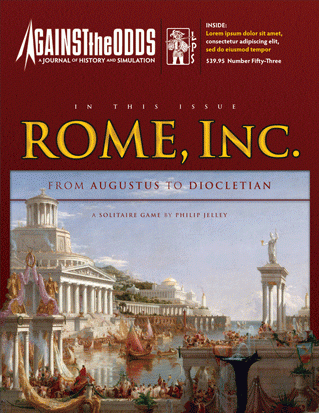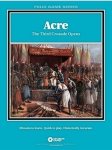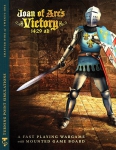-
Załączniki bezpieczeństwa
Załczniki do produktuZałączniki dotyczące bezpieczeństwa produktu zawierają informacje o opakowaniu produktu i mogą dostarczać kluczowych informacji dotyczących bezpieczeństwa konkretnego produktu
-
Informacje o producencie
Informacje o producencieInformacje dotyczące produktu obejmują adres i powiązane dane producenta produktu.Against the Odds
-
Osoba odpowiedzialna w UE
Osoba odpowiedzialna w UEPodmiot gospodarczy z siedzibą w UE zapewniający zgodność produktu z wymaganymi przepisami.
ROME, INC. by designer Philip Jelley is a solitaire game of the Roman Empire from Augustus in 27 BCE to Diocletian in 286 CE. The player (as CEO of this vast corporate empire), appoints consuls and governors, raises taxes, deploys legions, fleets and auxiliaries to garrison provinces, and fights wars to expand the prestige and power of Rome.
Historical statesmen are rated for their military and administrative talents, popularity, and skill at intrigue (or lack thereof), and each has a special ability. For example Augustus is rated as 5 for administration, 5 for popularity, 3 for intrigue and while only rated a 2 for military, he also has the Conquest special ability. This makes him excellent at collecting taxes, increasing prestige and keeping the mob happy, but a poor general overall, even though Conquest allows him to annex extra provinces. Nero is rated 2 for administration, 4 for popularity, 5 for intrigue, but only 1 for military, and has the Persecution special (dis)ability, reducing prestige as long as he is Caesar. A player may use him to reduce unrest with his showmanship, or plot to remove him for the greater good of Rome ("the Biz").
Governors are used to fight wars, expand the empire, and develop provinces, but may make themselves Caesar through assassination or rebellion. New imperial dynasties change the rules of the game, provide new units, and determines who will succeed when Caesar dies.
Each turn produces a new crisis and the player, much like a modern CEO, earns victory points by expanding the empire and triumphing over wars and rebels, deciding where allocate his resources (capital spending), raise new forces (hiring), undertaking prestige projects (public relations), pleasing the mob ("the shareholders"), or even setting aside a reserve for a rainy decade or two. Annexing the rich provinces of the east will increase taxes, but securing the northern frontier may be more important. Placing a popular, competent general in command may result in a triumph, but encourage rebellion. A more loyal, but less able man may be better, or for Caesar to risk himself on the field of battle himself.
The map consists of provinces grouped into military commands such as Britannia and Syria, each commanded by a governor. Provinces may be controlled by barbarians, allies or insurgents, which can be conquered and developed into peaceful tax-payers. Beyond these are the homelands from where barbarian wars and enemy leaders pillage their way from province to province until defeated.
There are four scenarios starting in 27 BCE, 70 CE, 138 CE and 222 CE, which may be combined into campaign games. Each turn represented 5-10 years, with 10 turns in each of the four scenarios.
ROME, INC. and issue #53 of ATO
Map - One full color 22" x 34" mapsheet
Counters - 280 full color 1/2" die-cut pieces
Rules length - 12 pages
Charts and tables - 2 pages
Complexity - Medium
Playing time - From 3 to 4 hours
How challenging is it solitaire? - Excellent
Design - Philip Jelley
Development - S. Rawling
Graphic Design - Mark Mahaffey












